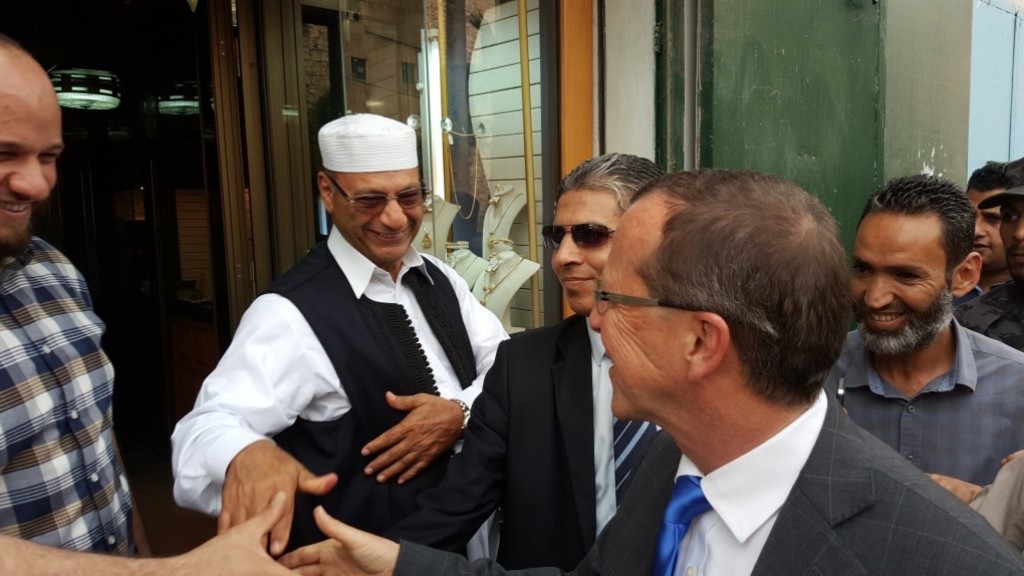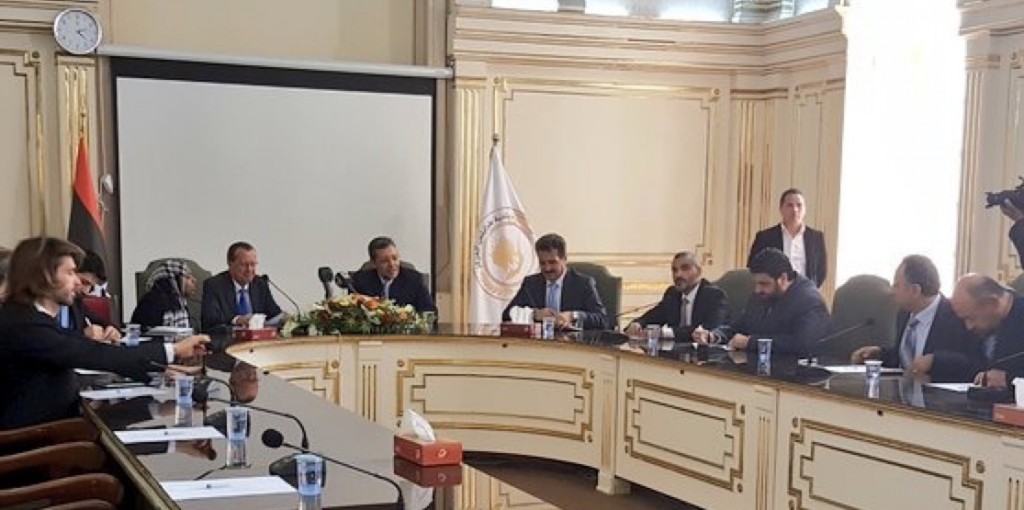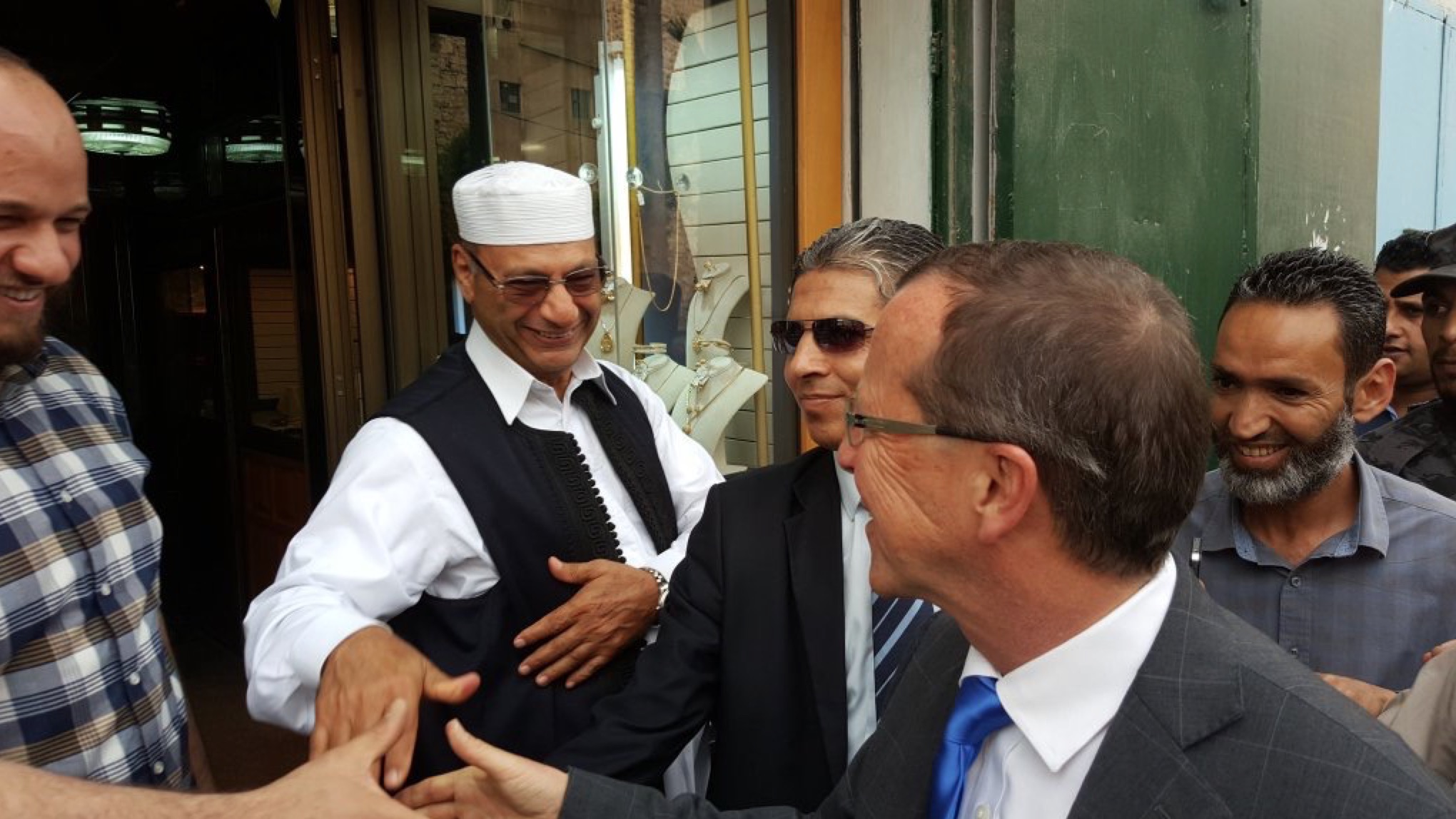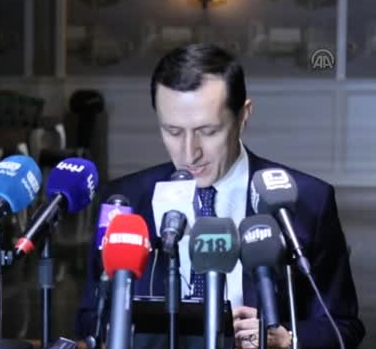By Libya Herald Staff.

Tunis, 5 April 2016:
In a further sign of the power shift in Tripoli, UN Special Envoy Martin Kobler . . .[restrict]flew into today for meetings with Presidency Council head, prime minister-designate Faiez Serraj, members of the Council and, separately, with representatives of the various municipalities in the Tripoli area.
Kobler had previously been prevented from landing at Mitiga airport by the former regime on more than one occasion.
His military adviser, General Paolo Serra, had already arrived yesterday.
Today, after arriving at Mitiga, Kobler met Serraj at the Bu Setta naval base which the Presidency Council is currently using as its headquarters. He then went to the Central Tripoli municipal offices in Algeria Square to meet Tripoli mayor Abdulrauf Beitelmal and mayors from neighbouring municipalities. That was followed by a walkabout in the city centre and the Old Town.

Meanwhile, despite calls from Kobler and the House of Representatives (HoR) president, Ageela Saleh, as well as from Omar Aswad, one of the two boycotting members of the Presidency Council, for the HoR to meet and vote on the Government of National Accord (GNA, there is still no sign as yet that members plan to turn up and do so.
Again this week, there was no parliamentary session in Tobruk.
The current inaction is centred on an argument within the HoR whether there should first be a vote amending the constitution and incorporating the Libyan Political Agreement (LPA) into it, or one appointing the GNA. Opponents of the GNA want a vote on the LPA first because they think it will fail because of the higher threshold needed to pass it. Supporters of the GNA are reported to be refusing to go to Tobruk unless it is agreed to hold the vote on the government first.
Different thresholds are required for the two different votes. A two-third majority is required to amend the 2011 Constitutional Declaration which acts as the temporary constitution while the appointment of the GNA would require 50 percent plus one vote of those attending. According to Salah, the quorum for such a meeting would be 100 members, which means that 51 members could appoint a government.
Most members, however, say that a GNA appointed without an amendment to the constitution would provide no solution to Libya’s divide.
In addition, there is a small number of HoR members who are implacably opposed to Serraj’s GNA government. These are mainly supporters of Hafter and have expressed support for military council to run Libya, although it is also clear that such a council would have next to no following in the west and south of the country. It is reported that some Hafter supporters are now calling for the HoR itself to be dissolved and power handed to the Supreme Judicial Council. This, however, is seen as a diversionary tactic and not thought serious.
For his part, Serraj, whom remains prime-minister-designate until the GNA is appointed by the HoR or the HoR approves the LPA (either would make him legally prime minister), has said that he will comply with Saleh’s demand two days ago and go with the Presidency Council to Tobruk to present the GNA to the parliament. However, no date has been decided.
It is thought that, though, that when Serraj goes to Tobruk, a sufficient number of members to constitute at least the quorum of 100 would turn up. [/restrict]










